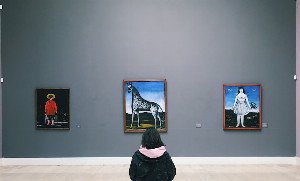ARNIE FAJAR
Implementation of Social Studies Learning at Cimahi City Junior High School Post-Covid-19 Pandemic
Introduction
Implementation of social studies learning at cimahi city junior high school post-covid-19 pandemic. Explore the implementation of Social Studies learning in Cimahi City junior high schools post-COVID-19 pandemic. This qualitative study reveals teacher practices in planning, execution, and assessment.
Abstract
This study aims to determine the implementation of social science learning at the end of the COVID-19 pandemic in junior high schools in Cimahi City. The approach used is qualitative with a descriptive method. The research instruments used are observation, interviews, documentation, and literature studies. Data analysis is carried out interactively simultaneosly as data collection and continous until data collection is complete. Furthermore, data reduction is carried out, data exposure is done, and finally, conclusions are made. The results showed that junior high school social studies teachers in Cimahi City had implemented social studies learning at the end of the COVID-19 pandemic by planning, implementing, and conducting learning assessments following applicable laws and regulations. Learning planning includes preparing annual programs, semesters, syllabi, and lesson implementation plans, although some social studies teachers must complete them. Most social studies teachers have carried out learning, including preparatory or preliminary activities, core learning, and closing, following the learning syntax very well, and some are included in the excellent category and quite well according to applicable regulations. However, the enrichment program has not been able to be implemented optimally. Social studies teachers have also conducted learning assessments following aplicable laws and regulations, including affective, cognitive, and psychomotor domain assessments.
Review
This study addresses a highly pertinent topic concerning the educational landscape post-COVID-19, specifically focusing on the implementation of social studies learning in junior high schools within Cimahi City. The return to 'normal' learning conditions presents unique challenges and opportunities, and understanding how teachers adapt their practices is crucial for policymakers and educators alike. The qualitative descriptive approach adopted by the authors is well-suited to exploring the nuances of implementation, offering a valuable snapshot of teacher adherence to regulatory frameworks in planning, execution, and assessment. The research thus fills an important gap by providing context-specific insights into the recovery phase of education. While the study's aim and approach are commendable, the abstract could benefit from greater methodological specificity. The use of observation, interviews, and documentation are appropriate for a qualitative study; however, details regarding the scope of these instruments, such as the number and type of participants interviewed (e.g., teachers, school administrators), or the specific aspects documented or observed, are not elaborated. Furthermore, while the interactive data analysis process is outlined, the inclusion of "literature studies" as a research instrument alongside empirical data collection warrants further explanation. Clarifying how literature informed or was analyzed with the primary data would enhance the methodological transparency and rigor of the study. The findings reveal that social studies teachers in Cimahi City largely adhere to established regulations in their post-pandemic learning practices, demonstrating commendable efforts in planning, core implementation, and assessment across cognitive, affective, and psychomotor domains. This suggests a resilient and adaptable teaching force. A key insight, however, is the suboptimal implementation of enrichment programs, which represents an important area for further investigation. Future research could delve into the underlying reasons for this shortfall – whether due to resource constraints, time limitations, or a need for further professional development. The study provides a solid foundation for understanding current practices and offers clear implications for targeted support and policy interventions aimed at optimizing the full spectrum of social studies education in the post-pandemic era.
Full Text
You need to be logged in to view the full text and Download file of this article - Implementation of Social Studies Learning at Cimahi City Junior High School Post-Covid-19 Pandemic from Forum Ilmu Sosial .
Login to View Full Text And DownloadComments
You need to be logged in to post a comment.
Top Blogs by Rating
Unlocking Life's Source Code:...
By Sciaria
The Hidden Scents of Rebellion...
By Sciaria
Decoding the Digital Matrix: U...
By Sciaria
Favorite Blog
Ghost Forests & Drowned Cities...
By Sciaria
The Indispensable Value of 'Us...
By Sciaria
The Average Trap: Why Means Ca...
By Sciaria
Related Research
Methods in contemporary ethnology ii
Pengaruh model problem based learning berbantuan powtoon terhadap hasil belajar siswa
A systematic approach utilizing the system engineering initiative for patient safety 2.0 model to mitigate fatigue in er
Share
Notice Board
- MADRA DAğı (BALıKESIR) YöRESININ STAPHYLINIDAE (COLEOPTERA) TüRLERININ ÇUKUR TUZAK YöNTEMIYLE BELIRLENMESI
- KEADILAN RESTORATIF DALAM KASUS PERUNDUNGAN OLEH ANAK: UPAYA PEMENUHAN ASAS KEADILAN BAGI KORBAN
- OPTIMIZING SELF-CARE IN CARDIOVASCULAR PATIENTS UNDERGOING TRANSCATHETER AORTIC VALVE IMPLANTATION: A SYSTEMATIC REVIEW PROTOCOL





